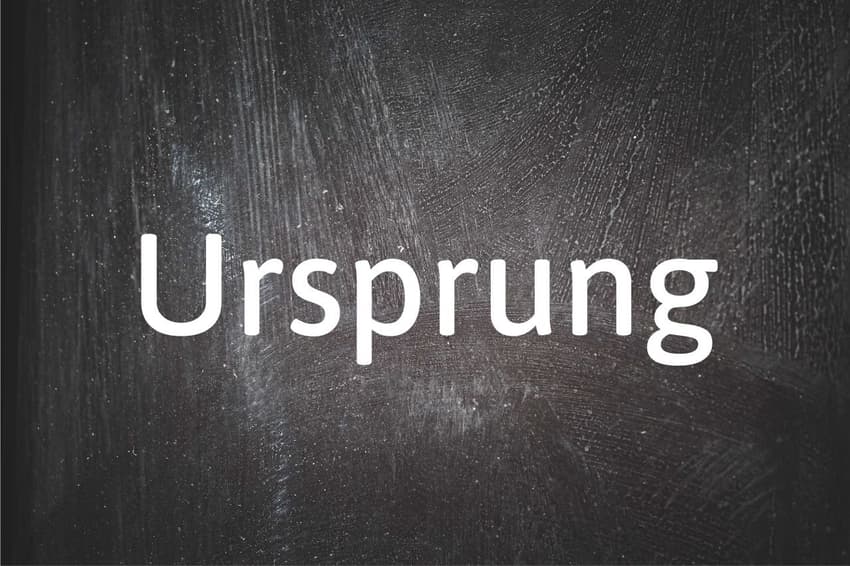German word of the day: Der Ursprung

Ursprung is one of these tricky, evil German words that change their meaning depending on the given context.
Why? Because it is just a single word for a number of English translations.
In German, Ursprung can have three general English equivalents: origin, source and root.
So Ursprung is used to describe something that created something else. That can be a moment in time, a place or even a material.
Even the word Ursprung has an Ursprung: It comes ursprünglich from the Middle High German word ursprunc, which used to just mean, "source.“
Nowadays it is usually used when something changed, and the adjective ursprünglich is far more common than the noun Ursprung.
Here is an example. If you want to tell somebody that your family has roots in, say, the USA but moved to Austria you can say: "Meine Familie kommt ursprünglich aus den USA.“ ("My family originally comes from the USA.“)
You could also say "Meine Familie hat ihren Ursprung in den USA“ ("My family has its origin in the USA.“) But even in English that sounds weird, admittedly.
Examples:
Diese Art hat ihren Ursprung in Indoniesien.
This species has its origin in Indonesia.
Ursprünglich habe ich in Vienna gewohnt, aber jetzt wohne ich in Innsbruck.
I used to live in Vienna, but now I live in Innsbruck.
Dieser Ring war ursprünglich aus reinem Gold, aber jetzt ist auch ein Muster Silber dabei.
This ring was originally made from pure gold, but now is also has patterns made from silver.
Comments
See Also
Why? Because it is just a single word for a number of English translations.
In German, Ursprung can have three general English equivalents: origin, source and root.
So Ursprung is used to describe something that created something else. That can be a moment in time, a place or even a material.
Even the word Ursprung has an Ursprung: It comes ursprünglich from the Middle High German word ursprunc, which used to just mean, "source.“
Nowadays it is usually used when something changed, and the adjective ursprünglich is far more common than the noun Ursprung.
Here is an example. If you want to tell somebody that your family has roots in, say, the USA but moved to Austria you can say: "Meine Familie kommt ursprünglich aus den USA.“ ("My family originally comes from the USA.“)
You could also say "Meine Familie hat ihren Ursprung in den USA“ ("My family has its origin in the USA.“) But even in English that sounds weird, admittedly.
Examples:
Diese Art hat ihren Ursprung in Indoniesien.
This species has its origin in Indonesia.
Ursprünglich habe ich in Vienna gewohnt, aber jetzt wohne ich in Innsbruck.
I used to live in Vienna, but now I live in Innsbruck.
Dieser Ring war ursprünglich aus reinem Gold, aber jetzt ist auch ein Muster Silber dabei.
This ring was originally made from pure gold, but now is also has patterns made from silver.
Join the conversation in our comments section below. Share your own views and experience and if you have a question or suggestion for our journalists then email us at [email protected].
Please keep comments civil, constructive and on topic – and make sure to read our terms of use before getting involved.
Please log in here to leave a comment.